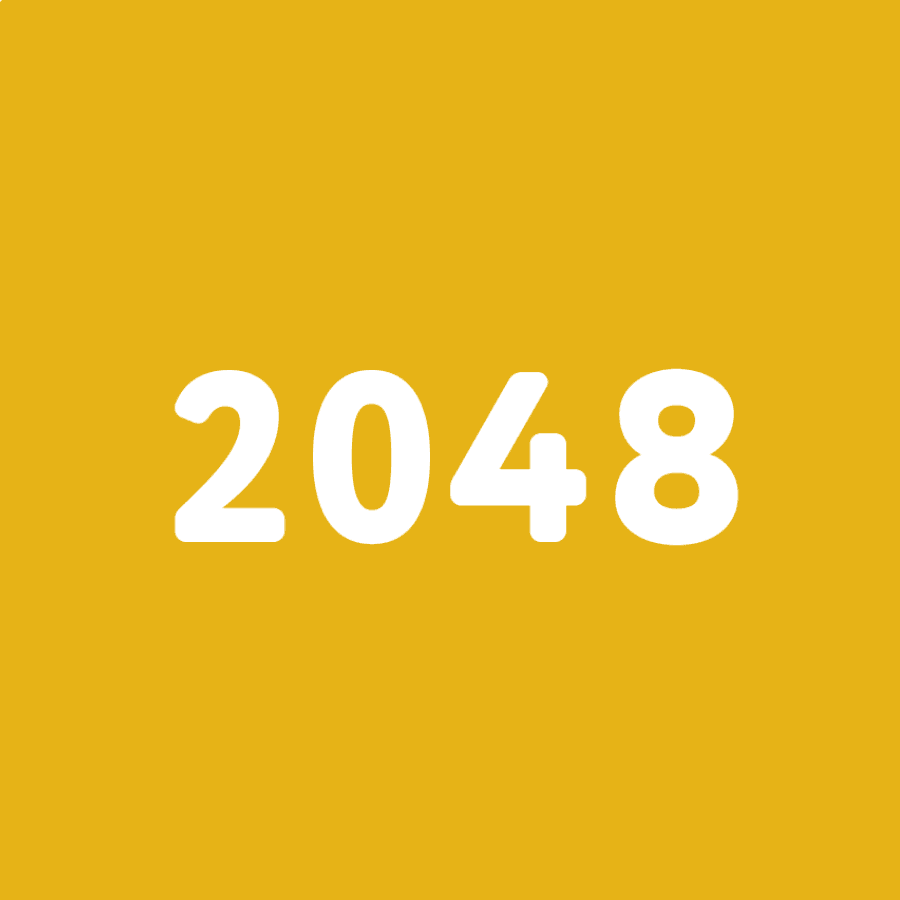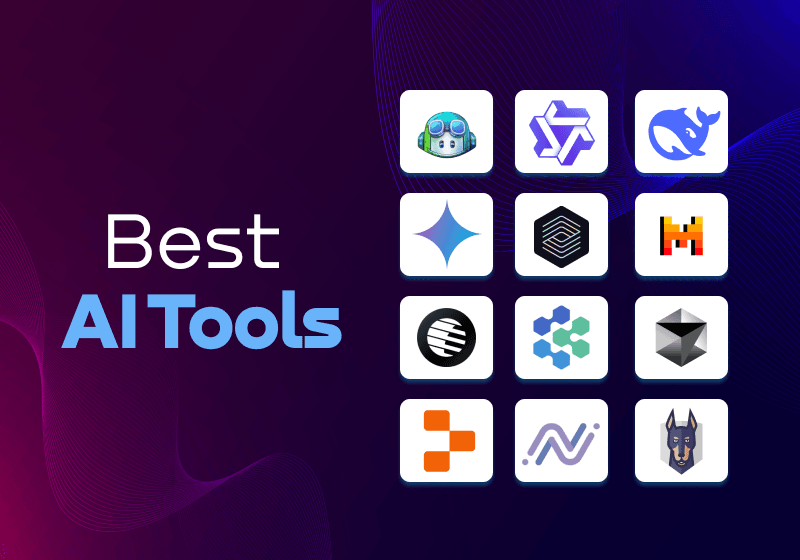

Artificial Intelligence is rapidly transforming our world, offering innovative solutions across various industries. As we look towards 2025, the landscape of AI tools is set to evolve dramatically, presenting exciting opportunities for individuals and businesses alike. (Let’s explore this topic in more detail with 2048 Game below)
As we approach 2025, the world of Artificial Intelligence is poised for remarkable advancements. AI tools are becoming increasingly sophisticated, offering unprecedented capabilities across various domains. From healthcare to finance, education to creative arts, AI is reshaping how we work, live, and interact with technology. The integration of AI with other cutting-edge technologies like quantum computing, robotics, and the Internet of Things (IoT) is opening up new frontiers of innovation.
One of the most significant trends we’re witnessing is the democratization of AI. Tools that were once accessible only to large corporations and specialized researchers are now becoming available to the general public. This democratization is fostering a new era of creativity and problem-solving, allowing individuals and small businesses to harness the power of AI in ways previously unimaginable.
In healthcare, AI tools are revolutionizing diagnostics, drug discovery, and personalized medicine. Machine learning algorithms are now capable of analyzing medical images with accuracy that rivals, and in some cases surpasses, human experts. AI-powered predictive models are helping healthcare providers anticipate patient needs and optimize treatment plans, leading to better outcomes and more efficient resource allocation.
The financial sector is another area where AI tools are making significant strides. Advanced algorithms are being used for fraud detection, risk assessment, and algorithmic trading. Robo-advisors are becoming more sophisticated, offering personalized financial advice based on complex market analysis and individual user profiles. By 2025, we can expect these tools to be even more integrated into our daily financial activities, from budgeting to investment management.
Read more: How Artificial Intelligence Is Changing Everyday Life
Perhaps one of the most exciting developments in the AI landscape is the rapid advancement of generative AI tools. These technologies are pushing the boundaries of creativity and content creation, offering new possibilities for artists, writers, musicians, and designers. By 2025, we can expect to see even more powerful and user-friendly generative AI tools that will revolutionize creative industries.
Text-to-image generation tools, which burst onto the scene in the early 2020s, are expected to reach new levels of sophistication by 2025. These tools will likely offer more fine-grained control over generated images, allowing users to specify complex scenes, styles, and compositions with unprecedented accuracy. We may also see the integration of these tools into mainstream design software, making AI-assisted image creation a standard part of the creative workflow.
In the realm of natural language processing, large language models are set to become even more capable and accessible. By 2025, we can expect to see AI writing assistants that can generate high-quality, context-aware content across various genres and styles. These tools will likely go beyond simple text generation, offering features like automatic fact-checking, style adaptation, and even multi-lingual content creation.
Music composition and audio generation tools powered by AI are also on track for significant improvements. By 2025, we may see AI tools that can compose entire musical pieces in specific styles, complete with arrangements and orchestrations. These tools could revolutionize the music industry, offering new avenues for creativity and collaboration between human musicians and AI.
As AI tools become more powerful and ubiquitous, it’s crucial to address the ethical considerations surrounding their use. By 2025, we can expect to see a greater emphasis on responsible AI development and deployment. This includes efforts to mitigate algorithmic bias, ensure data privacy, and maintain transparency in AI decision-making processes.
One of the key challenges will be balancing the benefits of AI with potential risks to privacy and security. As AI tools become more integrated into our daily lives, there will be a growing need for robust data protection measures and clear guidelines on how personal information is used and shared.
Another important consideration is the impact of AI on the job market. While AI tools are creating new opportunities and enhancing productivity in many fields, they are also automating certain tasks and potentially displacing some jobs. By 2025, we may see the emergence of new AI-related roles and a shift in the skills demanded by the job market. It will be crucial for individuals and organizations to adapt to these changes and invest in AI literacy and skills development.
The education sector is set to be transformed by AI tools in the coming years. By 2025, we can expect to see more sophisticated adaptive learning platforms that personalize educational content based on individual student needs and learning styles. These tools will likely incorporate advanced natural language processing to provide more interactive and engaging learning experiences.
AI-powered tutoring systems are also expected to become more prevalent. These virtual tutors will be capable of providing personalized assistance across various subjects, adapting their teaching methods to suit each student’s pace and preferences. Such tools could help address educational inequalities by providing high-quality, personalized instruction to students who might not otherwise have access to one-on-one tutoring.
In higher education and professional training, we may see the rise of AI-assisted curriculum development tools. These systems could analyze job market trends and skill demands to help educational institutions create more relevant and up-to-date course offerings. Additionally, AI tools could assist in grading and assessment, providing more consistent and objective evaluations while freeing up educators’ time for more personalized interaction with students.
The scientific community is set to benefit greatly from advancements in AI tools. By 2025, we can expect to see AI playing an even more significant role in accelerating scientific discovery across various fields. In the life sciences, AI tools are already being used to predict protein structures and design new molecules for drug discovery. These capabilities are likely to become more powerful and accessible, potentially leading to breakthroughs in treating diseases and developing new materials.
In climate science and environmental research, AI tools will be crucial in analyzing vast amounts of data from satellites, sensors, and climate models. These tools could help researchers better understand complex environmental systems, predict extreme weather events, and develop more effective strategies for mitigating and adapting to climate change.
Astronomy and space exploration are other areas where AI tools are set to make significant contributions. By 2025, we may see more advanced AI systems assisting in the analysis of astronomical data, potentially leading to new discoveries about the universe. In space exploration, AI could play a crucial role in autonomous spacecraft operations and in processing data from distant planets and celestial bodies.
The business world is set to be revolutionized by AI tools in the coming years. By 2025, we can expect to see AI deeply integrated into various aspects of business operations, from customer service to supply chain management. Intelligent chatbots and virtual assistants will likely become more sophisticated, capable of handling complex customer inquiries and providing personalized recommendations.
In the realm of business analytics and decision-making, AI tools will offer even more powerful predictive capabilities. These tools will be able to analyze vast amounts of data from multiple sources, providing insights that can inform strategic decisions and identify new business opportunities. We may also see the rise of AI-powered “digital twins” – virtual models of business processes or entire organizations that can be used to simulate different scenarios and optimize operations.
Marketing and advertising are other areas where AI tools are set to make significant impacts. By 2025, we can expect to see more advanced AI-driven marketing platforms that can create highly personalized campaigns, predict consumer behavior with greater accuracy, and optimize ad placements in real-time across various channels.
Read more: Voice Assistants Are Getting Smarter What’s Next
As the world grapples with environmental challenges, AI tools will play an increasingly important role in sustainability efforts. By 2025, we can expect to see more sophisticated AI systems for energy management, helping to optimize the use of renewable energy sources and reduce overall energy consumption in buildings and cities.
In waste management, AI tools could revolutionize recycling processes, using advanced image recognition to sort materials more efficiently. We may also see AI-powered systems for monitoring and managing natural resources, helping to prevent overexploitation and protect biodiversity.
Agriculture is another sector where AI tools are set to make significant contributions to sustainability. By 2025, we may see more widespread use of AI in precision farming, optimizing irrigation, fertilizer use, and crop management to increase yields while reducing environmental impact.